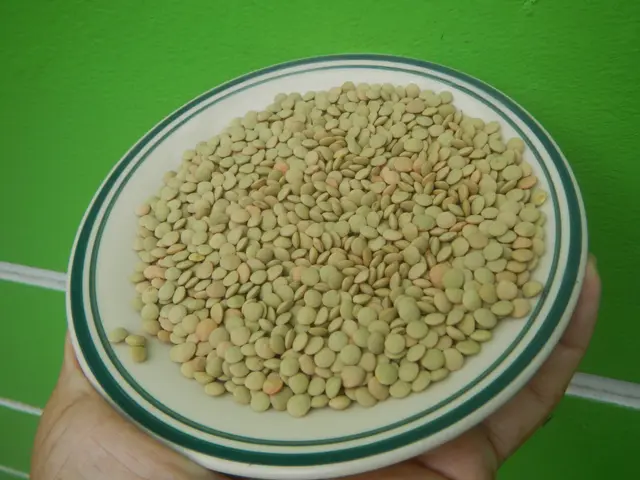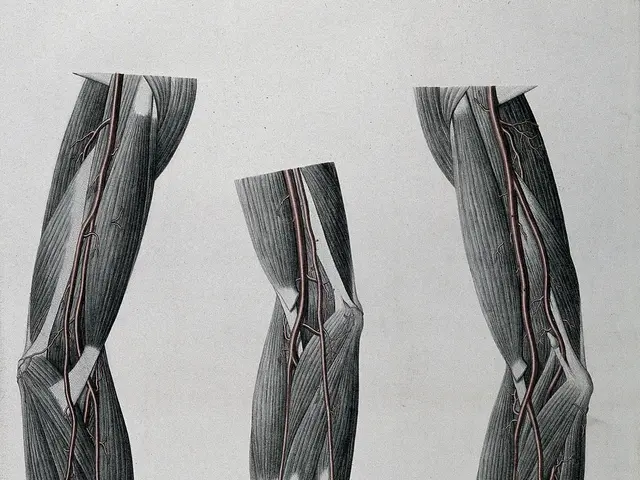Research Reveals Potential Diet for Minimizing Hot Flashes During Menopause
A new study published in the journal Menopause has found that plant-based diets, including some highly processed plant-based foods, may help reduce hot flashes for women during menopause.
The study, which involved 84 women, asked participants to either follow a low-fat vegan diet or continue with their usual diets, which typically mixed plant and animal foods, for a period of 12 weeks. The results showed that women who followed the vegan diet experienced a significant reduction in severe hot flashes, with a decrease of 92%, and also lost about 8 pounds on average.
Interestingly, the study found that women who consumed highly processed vegan foods still experienced weight loss, challenging the assumption that a plant-based diet must be 'clean' or minimally processed to be effective.
The research builds on a 2023 study, also published in the same journal, which showed that plant-based diets reduced the severity and frequency of hot flashes.
According to Dr. Susan Haas, an OB-GYN, a plant-based diet has benefits for overall health, and this study shows it might also help hot flashes. Dr. Katie Jo Light, another researcher, noted that this is significant as it challenges the assumption that plant-based diets must be free from processed foods to be beneficial.
The key health benefits of a plant-based diet during menopause include weight management, reduction in menopausal symptoms, improved heart health, and bone health support. Plant-based diets help manage weight, which is crucial since menopause often leads to weight gain and increased fat accumulation. Phytoestrogens in soy products and other plants bind to estrogen receptors, reducing hot flashes, brain fog, and improving sleep quality.
Regarding processed plant-based foods, considerations include nutritional quality variance and the safety of soy. Not all processed plant-based foods are equally healthy, and ultra-processed options may contain added sugars, sodium, or unhealthy fats, potentially reducing the overall benefits of the diet. However, extensive research and regulatory authorities agree that soy is generally safe at typical dietary intake levels and may be beneficial for menopausal women.
To maintain a balanced vegan diet, it is recommended to gradually transition and consult a registered dietitian. Fresh produce may not be accessible in some communities, but shortcuts like frozen vegetables, canned beans, and ready-to-eat grains can make it easier to stick to a plant-based diet.
While the new study provides promising results, it is important to note that a balanced vegan diet can be challenging to maintain due to potential nutrient deficiencies. Vitamin B12, calcium, zinc, vitamin D, and omega-3 fatty acids may be harder to obtain on a vegan diet.
Elizabeth Ward, a nutrition expert, stated that the inclusion of soy in the study further refutes the myth that soy isn't good for women, as soy has been shown to potentially minimize hot flashes.
In conclusion, including whole soy foods and other phytoestrogen-rich plants within a minimally processed plant-based diet is advantageous for menopausal health, balancing symptom relief, disease risk reduction, and weight management. Moderation and attention to processed food ingredients remain important for maximizing benefits.
- The new study published in the journal Menopause suggests that plant-based diets, including some highly processed plant-based foods, could help reduce hot flashes in women during menopause.
- Dr. Katie Jo Light noted that this study is significant as it challenges the assumption that plant-based diets must be free from processed foods to be beneficial.
- Phytoestrogens in soy products and other plants, when included in a plant-based diet, can bind to estrogen receptors, reducing hot flashes, brain fog, and improving sleep quality.
- Elizabeth Ward, a nutrition expert, stated that the inclusion of soy in the study further refutes the myth that soy isn't good for women, as soy has been shown to potentially minimize hot flashes.







